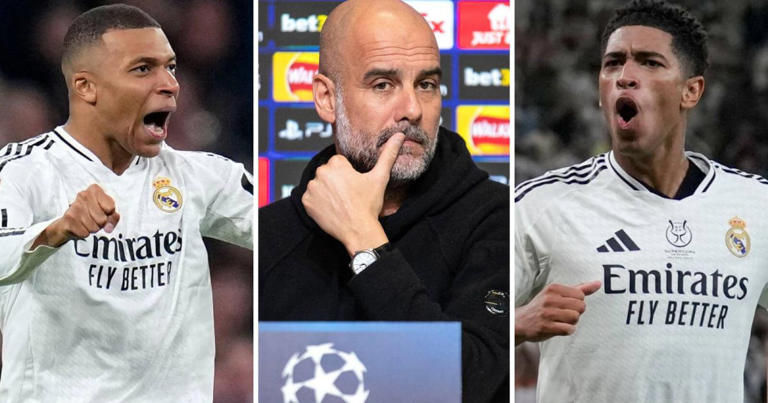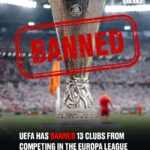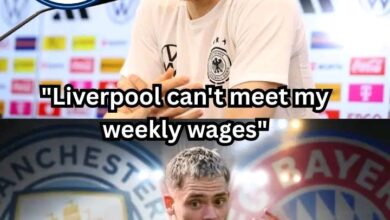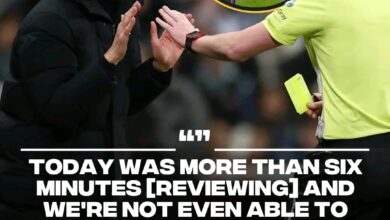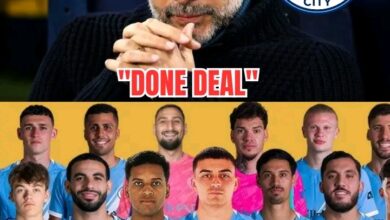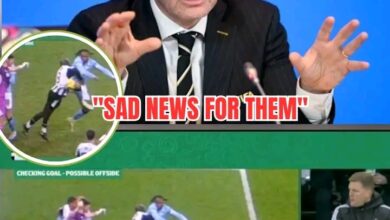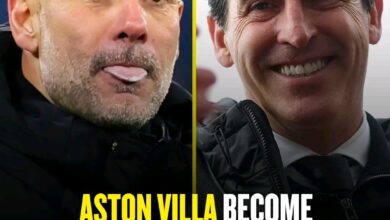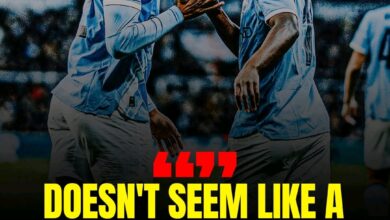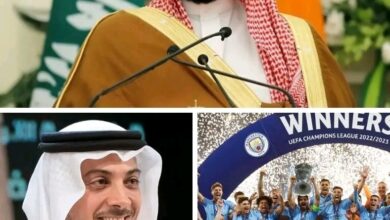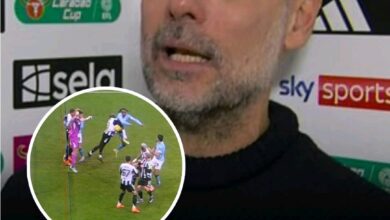Vinicius Jr sends Arsenal ominous warning after UEFA grant Real Madrid’s special Champions League request
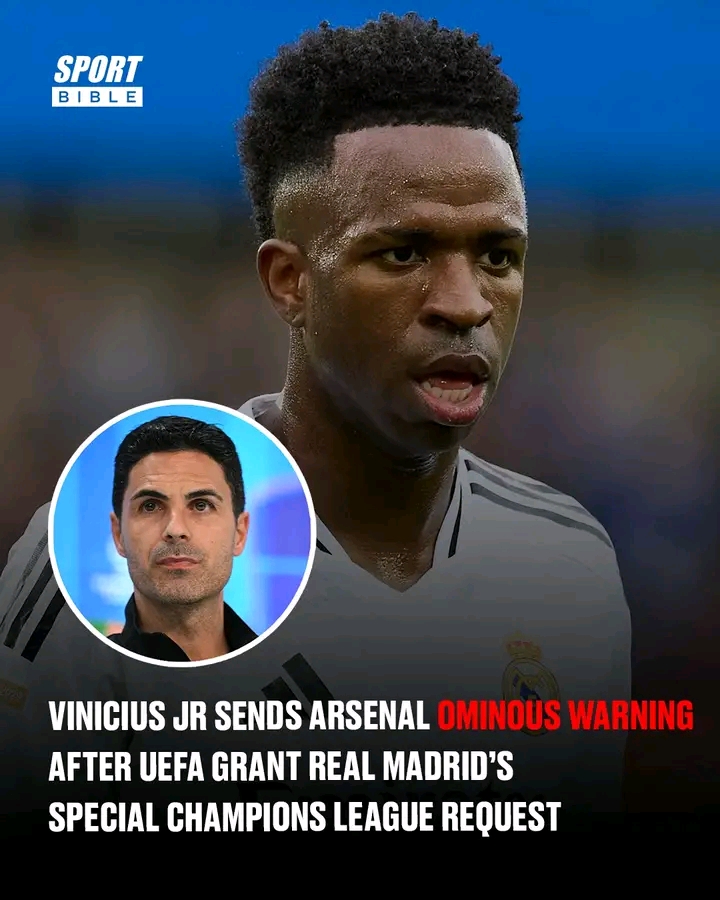
Real Madrid forward Vinicius Jr has sent a direct message to Arsenal ahead of Wednesday’s crucial Champions League quarter-final second leg at the Santiago Bernabeu, where Los Blancos will attempt to overturn a substantial 3-0 deficit from the first encounter.
The Brazilian international, who struggled to make his typical impact during the first leg defeat at the Emirates Stadium, appears determined to help orchestrate what would be another remarkable European comeback for the Spanish giants. Following last week’s disappointing performance, Vinicius took to Instagram with a reflective yet defiant message: “No excuses. Bad game. We must improve and fight at the Bernabéu. Magic things already happened at our home… and we can do it again.”
Now, on the eve of the return fixture, the 24-year-old has posted a simple but pointed message to his 52.9 million Instagram followers that reads: “Manana. 9pm” (Tomorrow. 9pm) – signaling his focus on the upcoming challenge against Mikel Arteta’s side.
The stage for this potential comeback has been further set by UEFA’s approval of a special request from Real Madrid to close the retractable roof of the recently renovated Santiago Bernabeu stadium. Both UEFA and the club confirmed to SPORTbible that permission has been granted to utilize the roof, which was added as part of the venue’s £1.5 billion modernization project. Similar requests have previously been approved for Champions League fixtures, potentially creating an even more intimidating atmosphere for the visiting Arsenal squad.
Real Madrid’s England international midfielder Jude Bellingham addressed the media during Tuesday’s press conference, emphasizing the club’s storied history of dramatic European turnarounds: “I think there’s an expectation of Real Madrid that when we get in these holes we can come back,” Bellingham stated. “In England, it’s not as common but it does happen. The club have done it so many times, so the expectations are huge.”
The midfielder was forthright about his team’s subpar performance in London: “There wasn’t one aspect of our game in the first leg that was up to the standard we expect of ourselves. We know we can play a lot better and that’s what we want to show.”
Bellingham also revealed how the club’s rich European pedigree has fueled his motivation for the return leg: “I’ve heard it a million times since last week, I’ve seen a million videos – it’s really motivating stuff. It’s a night that’s made for Real Madrid. A night that would go down in history but also something that people are familiar with around this part of this world. Hopefully we can add another special night.”
Arsenal enter the match with a commanding advantage after an impressive first-leg performance where Declan Rice converted two free-kicks and Mikel Merino added a third goal. However, few would completely write off the 15-time European champions, particularly at their home stadium where they have engineered numerous remarkable comebacks throughout their illustrious Champions League history.
With both Vinicius Jr and his teammates clearly motivated to produce another memorable European night, and with the Santiago Bernabeu roof closed to maximize the home atmosphere, Arsenal will need to demonstrate exceptional resilience to protect their advantage and advance to the semi-finals of Europe’s premier club competition.
Beyond the psychological warfare and venue preparations, both teams must address key tactical considerations heading into this decisive clash. For Real Madrid, finding ways to break down Arsenal’s disciplined defensive structure will be paramount. In the first leg, the Gunners effectively neutralized Madrid’s attacking threats, with Vinicius Jr particularly well-contained by Arsenal’s right side.
Carlo Ancelotti may consider tactical adjustments to create more space for his Brazilian star. This could involve deploying Rodrygo in a more central role to draw defenders inward, potentially freeing Vinicius on the left flank. Additionally, Bellingham’s positioning will be crucial – after a relatively quiet first leg by his standards, the Englishman might adopt a more advanced role to support the attack.
For Arsenal, the challenge will be balancing defensive solidity with the threat on counter-attacks. Arteta’s side demonstrated in the first leg that they can hurt Madrid when given space, and scoring an away goal would significantly complicate Madrid’s comeback efforts. Players like Bukayo Saka and Gabriel Martinelli could prove decisive on the break if Madrid commit numbers forward.
The midfield battle will likely determine the rhythm of the match. Real Madrid will need Toni Kroos and Federico Valverde to control possession and tempo, while Arsenal’s Declan Rice – already a key figure in the first leg with his two goals – will aim to disrupt Madrid’s flow and launch transitions.
Both managers have big decisions regarding their starting lineups. Ancelotti may gamble with a more attacking formation from the outset, potentially sacrificing defensive stability for greater firepower. Arteta must decide whether to maintain the same approach that worked so effectively in London or adopt a more conservative stance to protect the lead.
Set pieces could prove influential once again, having played a major role in the first leg with Rice’s two free-kick goals. Madrid will be wary of conceding in these situations, while simultaneously viewing them as opportunities to begin their comeback.
As kickoff approaches, tension builds not only in Madrid but across the football world. Champions League knockout ties of this magnitude often produce memorable moments that resonate for years to come. Will it be another historic comeback for the kings of Europe, or will Arsenal’s new generation announce themselves on the grandest stage by eliminating the competition’s most decorated club?

